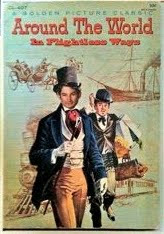Today I continue my mad rush to get to a ferry to Malaysia before my tourist visa for Indonesia runs out on June 1. I’m not sure how strict the Indonesian government is about that sort of thing but I don’t want any trouble so I’m making my way to Dumai, the nearest place where ferries leave from. Two days ago I caught a shuttle car for the six hour trip to Mukomuko (during which the Duel incident took place) and stayed the night there. It’s a tiny settlement and I had a pleasant walk in the countryside that evening. The next day I got another shuttle car to Padang (which is one of the bigger cities in Sumatra but which doesn’t sound too interesting in the lonely planet guidebook) taking eight and half hours, and then another three-hour bus ride to Bukitinggi. Bukittingi is up in the mountains so is a lot cooler and rainy which makes a pleasant change. It’s quite touristy with hotels and shops selling tacky stuff and I visited a museum and a small zoo. I stayed only one night. There are tours that one can take to lakes, handcraft villages, waterfalls, and other places but I don’t have time so I’m sitting in a bus at the terminal, waiting to depart to Dumai. The ride will take ten hours and I’ll stay the night, catching the ferry to Melaka in Malaysia tomorrow morning.

A painting on black velvet of Bukittinggi
It’s a bit of a pity I’ve had to rush out of the country because of the days I lost when my wallet was stolen. It means I haven’t seen some things which Sumatra is famous for like orangutans and Lake Toba, but I’ve still enjoyed my time here. There was some fantastic scenery along the coast between Bengkulu and Padang. A place called Painan seems to be where to go if you should ever come here. It had beautiful beaches and places to stay but with few tourists.
Last night in Bukittinggi I saw the first westerner I’ve seen in many days since I left Jakarta, in a cafe opposite my hotel. I thought I caught a glimpse of one in Kalianda but not sure about that. Westerners are seldom seen here and I’ve been asked dozens of times to have my photo taken by and with locals.
Elections are being held in Indonesia sometime soon and there are millions of posters up advertising candidates. Here are a couple of billboards. These posters are everywhere, much more prevalent than other advertisements. I think the country should spend less on election posters and more on the roads.

































